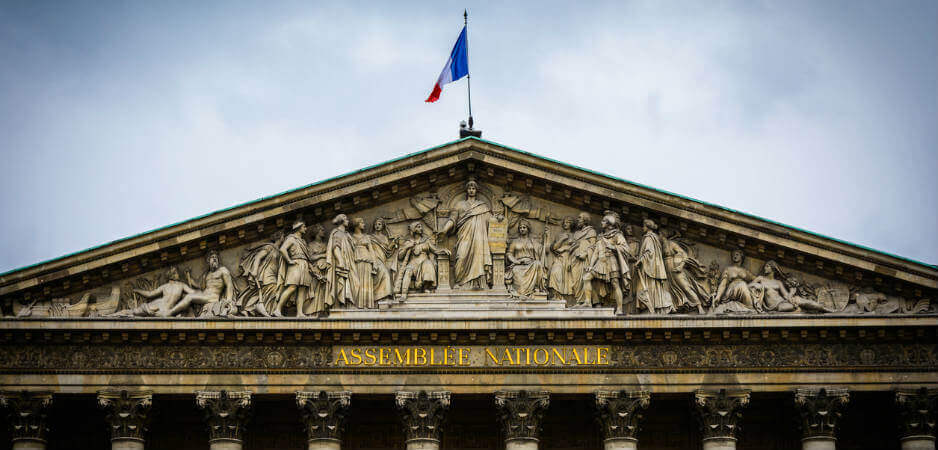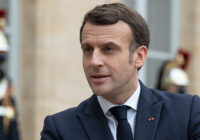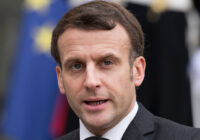France breathes a sigh of relief after Emmanuel Macron’s victory in the presidential election.
Former banker and Economy Minister Emmanuel Macron emerged victorious over Marine Le Pen in the second round of the 2017 French presidential elections on May 7. Unknown two years ago and never elected to public office before, the founder of the independent movement En Marche! (On the Move!), which he described as “neither right nor left,” became the youngest president in the history of the French Republic. Macron’s pro-business and pro-European platform clashed with Le Pen’s anti-globalization message throughout his campaign.
Sweeping 66% of the vote, Macron has temporarily pushed back the tide of populism in France. While his victory is giving hope to European and French liberals, Macron’s status as a political novice with no established party and a former adviser to the unpopular incumbent president François Hollande highlights his difficulties in the forthcoming parliamentary elections in June. Securing a parliamentary majority will be instrumental for Macron’s ability to deliver his agenda of economic modernization. The 2017 elections have rewarded outsiders and remapped French politics by dealing a blow to traditional parties. Without a party apparatus Macron will nonetheless struggle to form a workable majority.
The election campaign was marked by regular parallels between the Macron and Le Pen runoff and Jacques Chirac’s victory against Le Pen’s father, Jean-Marie, in 2002. Yet Macron is operating in a radically different political context. While Chirac pulled 82.2% of the vote in 2002 over Le Pen’s 17.79%, Marine Le Pen considerably increased the National Front’s margin in 2017 (33%). In the aftermath of Macron’s victory, Le Pen hailed her party’s results and claimed that the National Front had become the “first opposition force in the country.”
In 2002, Jean-Marie Le Pen’s qualification for the second round of the election sent shockwaves throughout the country. For the past 15 years, the National Front has become a stable feature of French politics and progressively managed to bring its core election themes (immigration and security) to the center of French political debate.
During the 2002 runoff with Le Pen, Chirac explicitly stated that he would not consider every vote in his name as an expression of support — an attitude that Macron has not replicated in this election. Effectively, Macron only secured 24% of the vote in the first round, while some polls indicated that more than 50% of voters chose him by default as the best adversary against Le Pen, who was certain to reach the final stage. The fact that abstention exceeded 25% on Sunday, its highest level since 1969 for a presidential second round, is a clear sign of the electorate’s dissatisfaction with the alternatives on offer. In addition, 11% of those who voted cast a blank ballot, thus explicitly rejecting both candidates and the voting process.
The Rise of the Outsider
Macron’s victory was facilitated by the collapse of traditional parties, the conservative Les Républicains and the left-leaning Socialist Party. The two parties that have structured French political life for the past 50 years were eliminated in the first round of voting. While the Socialist Party’s campaign was torpedoed by President Hollande’s historically low popularity, the Republicans’ campaign was undermined by allegations that its candidate François Fillon had paid his family close to €1 million worth of taxpayers’ money in fake parliamentary jobs.
Despite being a former adviser to François Hollande, Macron managed to cast himself as an outsider to France’s mainstream politics by leaving the Socialist Party in 2016 and creating his own political movement. After their defeat, the Socialists and Republicans were nonetheless quick to announce that they will campaign on their own in the parliamentary elections and will seek to reinvent themselves.
Fillon, who is widely seen as the architect of the Republicans’ defeat in the election has stepped down, and several young candidates with presidential ambitions have emerged as potential party leaders. The Socialist Party is arguably in disarray and could provide a pool of support to Macron, although a number of Socialist parliamentarians have refused to do so.
Forming a Parliamentary Majority
France will hold parliamentary elections on 11 and 18 June, in which the new president will be seeking to form a working parliamentary majority in the lower house of parliament, the Assemblée Nationale. The parliamentary elections will show whether Macron’s movement can morph into a fully-fledged political party. With no representatives in parliament, no local branches and a party apparatus that does not match its political opponents’, Macron’s movement will be leading an improvised and hasty campaign. In the same time, traditional parties will benefit from their campaigning experience and are likely to win most seats. Macron will have to seek support from parliamentarians on both sides of the political spectrum and appeal to the center-right and the center-left to form a coalition of moderate Republicans and Socialists. How reliable such a makeshift majority will be during Macron’s five-year presidency remains uncertain.
After the announcement of his victory, a number of senior French politicians from the right and the left indicated that they would not be associated with a centrist government. Macron’s political honeymoon may be brief.
The views expressed in this article are the author’s own and do not necessarily reflect Fair Observer’s editorial policy.
Photo Credit: vladsogodel
Support Fair Observer
We rely on your support for our independence, diversity and quality.
For more than 10 years, Fair Observer has been free, fair and independent. No billionaire owns us, no advertisers control us. We are a reader-supported nonprofit. Unlike many other publications, we keep our content free for readers regardless of where they live or whether they can afford to pay. We have no paywalls and no ads.
In the post-truth era of fake news, echo chambers and filter bubbles, we publish a plurality of perspectives from around the world. Anyone can publish with us, but everyone goes through a rigorous editorial process. So, you get fact-checked, well-reasoned content instead of noise.
We publish 2,500+ voices from 90+ countries. We also conduct education and training programs
on subjects ranging from digital media and journalism to writing and critical thinking. This
doesn’t come cheap. Servers, editors, trainers and web developers cost
money.
Please consider supporting us on a regular basis as a recurring donor or a
sustaining member.
Will you support FO’s journalism?
We rely on your support for our independence, diversity and quality.






